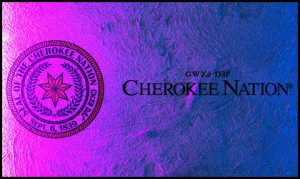In Oklahoma and a federal judge has reportedly brought the long-running dispute over gaming compacts to an end by ruling that deals the state inked with its many casino-operating tribes some 15 years ago are to remain valid until the end of 2035.
According to a Tuesday report from local television broadcaster KTUL-TV, this quarrel began a full year ago when Oklahoma Governor Kevin Stitt (pictured) announced that he would like to see the tribes behind the state’s collection of around 130 aboriginal casinos begin paying a higher range of ‘exclusivity fees.’ The Republican was purportedly eager to gain a bigger piece of the estimated $2.3 billion these venues collectively earn every year after ‘The Sooner State’ managed to collect only about $139 million in such duties for the whole of 2018.
Principal protections:
KTUL-TV reported that these ‘exclusivity fees’ are a feature of the 15-year gaming compacts Oklahoma signed with its many casino-operating tribes in 2004 and forbid the state from legalizing non-tribal gaming in exchange for receiving between 4% and 10% of an aboriginal venue’s gambling revenues.
Opposing opinions:
While Stitt reportedly believed these existing gaming compacts with their associated ‘exclusivity fees’ had expired at the beginning of the year, some of Oklahoma’s tribes went to court to argue the arrangements had contained an automatic roll-over clause that meant they would remain valid for yet another 15-year period.
Tribal triumph:
The broadcaster reported that the related gaming compacts contain a provision that they ‘shall automatically renew for successive additional 15-year terms’ if the state has licensed any other organization ‘to conduct electronic gaming in any form other than parimutuel wagering on live horseracing.’ The tribes purportedly successfully managed to contend that the Oklahoma Horse Racing Commission’s licensing of Will Rogers Downs and Remington Park in October had fulfilled this consequential extension stipulation.
Futile expense:
Chuck Hoskin, Chief for the Cherokee Nation of Oklahoma, reportedly told KTUL-TV that Stitt’s actions had damaged relations between the state and some of its casino-operating tribes while costing taxpayers around $1.5 million in needless legal fees.
Hoskin reportedly declared…
“This was an unnecessary dispute. This was a dispute that cost Oklahoma $1.5 million but the cost was steeper than that. We’ll keep doing this, which is $1.5 billion to the state [and] a tremendous opportunity for rural economic development with thousands and thousands of jobs; those opportunities will continue.”
Critical consideration:
For his part and Stitt reportedly told the broadcaster that the ruling along with the United States Supreme Court’s recent McGirt v Oklahoma decision have raised serious questions regarding who is obligated to pay tax and the ‘constitutional proportions about what it means to be the state of Oklahoma’.
Stitt reportedly proclaimed…
“It confirms my fears and the fears of many fellow Oklahomans that the state entered into a poorly negotiated deal and now we must bear the cost of this mistake.”
